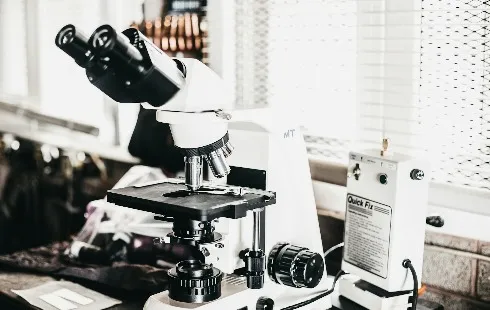
Gonadorelin Peptide: A Gateway to Understanding Endocrine Dynamics
Section: Science
 In order to fully realize the potential of QST, Bavarian businesses are already working with research institutions. Bavaria is fully committed to becoming a major global hub for quantum science and technology.
In order to fully realize the potential of QST, Bavarian businesses are already working with research institutions. Bavaria is fully committed to becoming a major global hub for quantum science and technology.
Here are some illustrations of important projects and ongoing corporate initiatives as detailed by Invest in Bavaria.
Facilitating the Mittelstand's (mid-sized companies') access to quantum computing.
Many of the large corporations in Bavaria have established their own QST research divisions, but this is largely outside the purview of the mid-sized businesses that make up the core of the Bavarian economy. Several initiatives are being carried out in Bavaria to close this gap and make the technology available to mid-sized businesses.
For instance, the Munich-based Quantum Applications and Research Laboratory (QAR-Lab) is collaborating with 19 partners on the PlanQK project (Platform and Ecosystem for Quantum-Assisted Artificial Intelligence) to investigate potential application areas in German mid-sized businesses without in-house research departments. The project aims to give these businesses early access to quantum advantages. In order to make this possible, PlanQK offers data on available technologies and contacts for subject-matter experts, as well as aids in filling out applications via an easily accessible knowledge platform.
The detection and forecasting of anomalies and fraud in the financial sector as well as the optimization of maintenance procedures in business and public transportation are examples of applications of quantum technology. Additional uses include networking and controlling industrial components as well as optimizing industrial production lines.
The Bavarian Competence Centre for Quantum Security and Data Science BayQS's mission is to lay the groundwork for easier, more reliable use of quantum computing in order to make it widely applicable. It studies software problems associated with quantum computing and creates remedies in the following areas:.
o Assisting the industry in finding quantum advantages in issues that are relevant to practical use.
o Reducing the potential for intellectual property loss as a result of research findings made possible by the use of current quantum hardware interfaces.
o Making quantum algorithms more easily developed.
Applications that are cutting edge in the field of cybersecurity.
Many of the popular cryptographic protocols used to safeguard sensitive data in the modern digital world could be broken by quantum computers. However, quantum computing can also be used to create more secure encryption techniques that can fend off assaults from both classical and quantum computers. Cybersecurity is a primary application for quantum computing due to the potential for creating more secure cryptographic systems, as evidenced by the numerous RandD initiatives in Bavaria.
For instance, the University of the Federal Armed Forces Munich collaborates on the MuQuaNet (Munich Quantum Network) project with other parties, including the Munich-based IT security specialist Rohde & Schwarz Cybersecurity. They want to create, operate, and make available to other research institutions and authorities a quantum-secure communications network for study and assessment.
The creation of extremely secure quantum-resistant networks has already been accomplished, which is a significant MuQuNet milestone. The Rohde & Schwarz Cybersecurity key management system has now undergone a successful test.
Working on many different facets of quantum computing-proof cryptography are specialists from all over the world. Infineon, Siemens, the Fraunhofer Institute for Applied and Integrated Security, the Technical Universities of Munich and Darmstadt, and Giesecke+Devrient are some of the companies working together on Aquorypt in Bavaria. The project's goal is to determine whether quantum-safe cryptographic techniques can be used effectively for embedded systems in the workplace and for smart card-based security applications.
The project benefits from the knowledge of micro embedded systems provided by Giesecke+Devrient, a multinational security technology provider with its headquarters in Munich. The main obstacle is fitting new cryptographic operations onto chips without making them larger. Experts have compared this endeavor to "trying to fit an elephant onto a postage stamp.".
The Bay QS (see above) BayQS - Fraunhofer AISEC offers a Cybersecurity Training Lab for those who are just getting started. Anyone interested in learning about quantum computing, from beginners to quantum experts, is welcome. Managers can receive awareness training, and there are both introductory and in-depth seminars available for those who are new to quantum computing. In-house workshops are a good way to look more closely at particular problems or specific algorithms.
Obtaining a huge advantage in the financial services industry.
The complex mix of risk factors, which includes pandemics, supply chain vulnerabilities, and climate change, can be broadly described but is challenging to quantify. To protect themselves from risks and lessen the effects on the individual, insurance companies need to anticipate and comprehend this mix.
Determining how quantum computers can aid in computing complex loss and damage probabilities is what a team at MunichRe has been looking into since 2020. In addition to using historical data, they also run simulations because doing so allows them to estimate potential losses under various future scenarios.
Quantum computers are capable of simultaneously considering many different scenarios, in contrast to conventional computers, which can only calculate different scenarios sequentially (one after another). The amount of time needed to solve them can be significantly decreased as a result.
In conclusion, quantum science and technology can help insurance companies better understand risks and provide new products for situations that weren't previously covered by insurance.
As one of the QUTAC Application Group's 13 prominent German corporations, MunichRe is one of its four Bavarian members. The goal of QUTAC is to jointly identify, develop, test, and share QC applications, as well as to create a highly effective German QC ecosystem.
Energy for semiconductors.
Infineon, a company based in Munich, is involved in one of the QUTAC projects. As a producer of semiconductors, Infineon is very reliant on trustworthy global supply chains. Because of this, demand-capacity matching is extremely difficult, and until recently, classical computer technology was unable to even approximate the underlying optimization problem. However, Infineon thinks quantum computing could be used to at least partially resolve the plethora of challenging optimization issues.
This new method of calculating risk holds particular promise for emerging technologies. If cyberattacks, IOT services, and artificial intelligence can be insured, it will encourage businesses to adopt cutting-edge technologies earlier while avoiding or hedging against potential risks associated with their adoption
.
Healthcare is advancing at an exponential rate.
Bavaria is making significant investments in biomedical engineering to create cutting-edge methods for the diagnosis and treatment of diseases as well as to make up for physical impairments.
One outstanding illustration is the Technical University of Munich's (TUM) Munich Institute of Biomedical Engineering (MIBE). It encourages research collaboration and biomedical engineering education. Medicine, the natural sciences, and engineering sciences are just a few of the disciplines that are combined in MIBE.
One of their ongoing joint projects aims to use quantum technology for cancer imaging. An interdisciplinary research team is working to advance the development of a quantum-based hyperpolariser to enable the magnetic resonance imaging (MRI)-based tracking of the metabolism of tumor cells, which has not yet been practical in everyday clinical settings. It would be used in medical settings. The objective is to significantly enhance metabolic process MRI imaging, enabling earlier and more precise tumor assessments, and improving the selection and monitoring of tumor therapies.
The MIBE team collaborates with other German universities as well as commercial partners like Siemens and Rapid Biomedical, a renowned provider of magnetic resonance research coils with headquarters in Lower Franconia.
These are only a few instances of how Bavarian QST is generating new growth opportunities.

Section: Science

Section: Health

Section: Arts

Section: Health

Section: Science

Section: News

Section: News

Section: Health Insurance

Section: Health

Section: News
Health Insurance in Germany is compulsory and sometimes complicated, not to mention expensive. As an expat, you are required to navigate this landscape within weeks of arriving, so check our FAQ on PKV. For our guide on resources and access to agents who can give you a competitive quote, try our PKV Cost comparison tool.
Germany is famous for its medical expertise and extensive number of hospitals and clinics. See this comprehensive directory of hospitals and clinics across the country, complete with links to their websites, addresses, contact info, and specializations/services.
What do you get when you blend the tradition of American stand-up comedy with themes that are anything but funny? Pair that with a captivating performer and author like Claus von Wagner, and you're guaranteed a fantastic evening. Projekt Equilibrium is his latest program, which explores the quest...



No comments yet. Be the first to comment!